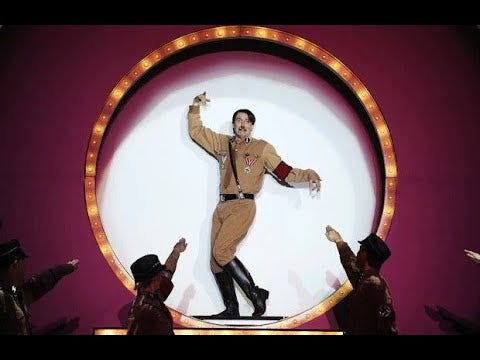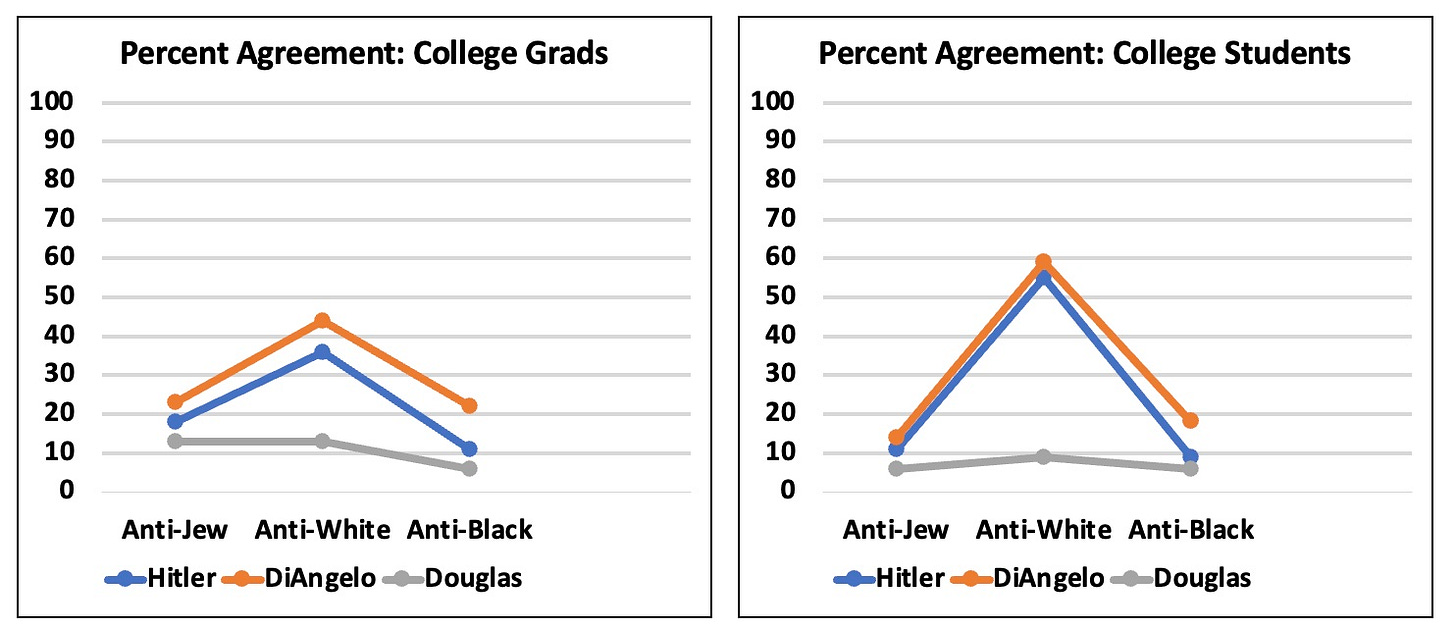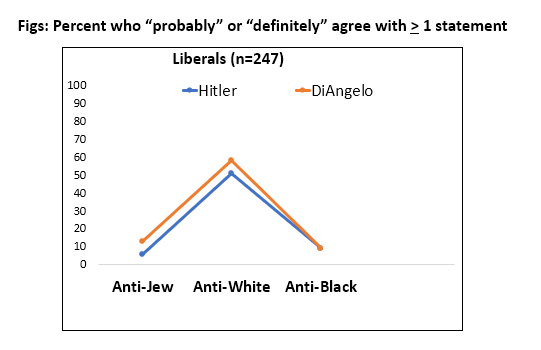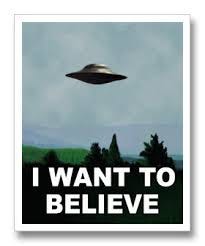This is a guest post by Michael Bernstein (Brown University) & April Bleske-Rechek (University of Wisconsin-Eau Claire). Michael Bernstein is an experimental psychologist and an Assistant Professor at Brown University. His research focuses on: cognitive biases, the placebo effect, pain, and substance use. He is an editor of the forthcoming book, The nocebo effect: When words make you sick.
April Bleske-Rechek is a differential and evolutionary psychologist. She is a full professor of psychology at the University of Wisconsin-Eau Claire, where she invests in mentoring undergraduate scholars and engaging students with viewpoints and data they are unlikely to be exposed to elsewhere. Her recent publications and presentations can be found on her personal website: bleske-rechek.com.
This work was first presented at the February, 2023 conference of the Society for Open Inquiry in the Behavioral Sciences — partially supported by paid subscriptions to this Substack!
By Michael Bernstein and April Bleske-Rechek
Let’s play a game. It’s called “Who said it: Robin DiAngelo or Adolf Hitler?” DiAngelo, in case you don’t know, is author of the NYT best-seller book, White Fragility. We’ll give you a couple quotes and you think about whether it’s from DiAngelo or Hitler. Ready, go.
1) Did Hitler say: “Not having a group consciousness, Jews often respond defensively when grouped with other Jews.” Or did DiAngelo say: “Not having a group consciousness, Whites often respond defensively when grouped with other Whites.”
2) Did Hitler say: “Jews… creep up on the workers in order to win their confidence, pretending to have compassion.” Or did DiAngelo say: “Whites… creep up on the workers in order to win their confidence, pretending to have compassion.”
For the record, the first quote is from DiAngelo and the second quote is from Hitler. Though whether you were right isn’t exactly the point, as an astute reader would probably know Hitler is likely to use the language of “workers” and DiAngelo is likely to use the language of “group consciousness”. The point is that DiAngelo and Hitler are both advocating an approach that reduces behavior to group membership. They describe the behavior of all Whites or all Jews in highly critical terms and conclude that this is the nature of Whiteness or Jewishness.
We know from decades of psychological research that people hold prejudices. But which groups in today’s society are more likely to be the target of expressions of prejudicial attitudes? And who is more likely to express them?
We decided to examine this empirically. Would agreement with the same statement, whether it be anti-White, anti-Black, or anti-Jew, vary depending on which group it referenced? And would political affiliation moderate attitudes?
We took 3 real anti-Jew quotes from Adolf Hitler, 3 real anti-White quotes from Robin DiAngelo, and 3 real anti-Black quotes from Stephen Douglas. (Douglas was a 19th century American politician who debated Abraham Lincoln). Then, we created anti-Jew, anti-White, and anti-Black variations of each quote, and showed it to 428 college graduates or college students (72% White). This means that 1/3 of participants saw the real quote verbatim, whereas the other 2/3 saw a version of the quote that was manipulated by changing the original (e.g., replace “Jew” with “White” or “Black”, or any other combination thereof). This is shown in the Table below. For each quote, participants were asked to imagine that an intellectual or political leader uttered the statement. They then indicated whether they agreed with the statement by selecting: “definitely no,” “probably no,” “probably yes,” or “definitely yes.” Participants answered this question for all nine quotes, and all were in the same frame (anti-Jew, anti-White, or anti-Black).
Table 1:

The results were surprising. For 7 of the 9 quotes, agreement differed according to target group. On each of these, agreement was highest in the anti-White condition versus the anti-Jew and anti-Black condition. The figures below show the percentage of college graduates (left) and college students (right) who either “probably” or “definitely” agreed with at least one statement, broken down by target group and the original author of the quote (Hitler vs. DiAngelo vs. Douglas). You can see that agreement with both Hitler and DiAngelo is much higher in the anti-White condition versus the other two conditions. Hardly anyone agreed with the Douglas quotes regardless of target group.
For the Hitler and DiAngelo quotes we analyzed the interaction between target group and political ideology.1 This was significant for all quotes, and we once again looked at the percentage of people who agreed with at least one of the statements, shown below. Anti-White sentiment was highest across the board – for liberals, moderates, and conservatives alike. Anti-White sentiment was the highest for liberals compared to other political groups; anti-Jew and anti-Black sentiment was highest for conservatives compared to other political groups.
In a sense, our results are nothing new. We simply observed what has existed for millennia: People treat some groups preferentially to others. In the Bible, the Egyptian Pharoah enslaved the people of Israel. And interestingly, even God responded to this tribally by establishing Passover which “The whole community of Israel is to be included on the meal,” but “no foreigners are to eat it.”2
Sweeping claims about all members of certain demographic groups seem to be on the rise in some circles. But unless you’re tuned into a relatively small number of heterodox writers like Bari Weiss or Coleman Hughes, you will rarely hear someone speculate about the counter-factual (e.g. Bob said all Whites do X vs. Imagine if he instead said all Blacks do X).
Coleman Hughes: “It [cops killing unarmed people] only gets pumped into the media when its a Black person, which gives the false impression that it only happens to Black people.” See also this survey finding that people in general, but especially liberals, massively overestimate the number of unarmed Black people killed by police.
In the language of Richard Dawkins, tribalism and prejudice may be memes. Memes, in this context, are ideas that “propagate themselves… by leaping from brain to brain” (Dawkins, 2016; p. 249). It is easy to see how tribal loyalties evolved evolutionarily (see Clark & Winegard, 2020), though finding that a mostly White sample had anti-White sentiment cannot be attributed to in-group preferences. Indeed, 55% of college students agreed with at least one Hitler quote applied to White people. Still, there is a historical precedent for people acting negatively towards their own group. In Nazi Germany, Kapos, who were prisoners but also functioned as SS guards, were often crueler towards their fellow prisoners (and frequently fellow Jews) than the Nazis themselves.
This type of tribalism never seems to go well. Why would we expect it to benefit us now?
An incomplete list of disclaimers that should go without saying:
1) Nothing in our essay is meant as an argument that DiAngelo is as evil a person as Hitler, or for that matter, evil at all. Hitler is responsible for the murder of 11 million people and the death toll from just the European theater of World War II was at least 40 million. DiAngelo is not responsible for the death of anyone. But we can recognize this fact while still pointing to similarities in their thinking.
2) Just because a person agrees with a quote from Hitler does not mean that person agrees with Hitler’s genocide.
Lee’s Addendum:
In 2018, Boghossian, Lindsay and Pluckrose published their (in)famous Grievance Studies sting, which they introduced this way:
Something has gone wrong in the university—especially in certain fields within the humanities. Scholarship based less upon finding truth and more upon attending to social grievances has become firmly established, if not fully dominant, within these fields, and their scholars increasingly bully students, administrators, and other departments into adhering to their worldview.3
In the sting, they succeeded at getting accepted for publication articles making absurd, even virulent claims because those claims were framed as some sort of social justice. One was a feminist rewrite of a section of Mein Kampf:
“My Struggle” is “Mein Kampf” in German. They saw this article and the others they published as damning indictments of the political corruption of academia. However, the sting in general, and the rewrite of Mein Kampf in particular were dismissed by much of academia with arguments like this:
Everyone knows peer review is a mess, lol.
There was no control group, lol!
They faked data!4
The section of Mein Kampf they rewrote was pretty innocuous.
They did so much rewriting, the article was not actually recognizably Mein Kampf.
This exchange was seen on my Twitter feed some time ago:
I am not evaluating the critiques of the Grievance Studies Sting here. But I think the research presented by Bernstein & Bleske-Rechek resolves the related question, “Will people on the modern American left endorse the actual Hitler’s actual virulent rhetoric, if it is framed as some sort of social justice by replacing “Jews” with “Whites”? As a side note, it is also interesting that endorsement of DiAngelo’s rhetoric closely paralleled that of Hitler’s. Although the research reported here did not examine academics, the U.S. academy is not just extremely left-skewed, it has massive overrepresentation of the far left. One possibility is that there would be even higher levels of endorsement within academia. Of course, its also possible that Bernstein & Bleske-Rechek’s findings would not generalize to academics.
It is possible. Right? Right? Right?
References
Bernstein, M.H., Zambrotta, N.S., Martin, S.D., Micalizzi, L. (2023). Tribalism in American Politics: Are Partisans Guilty of Double-Standards? Journal of Open Inquiry in the Behavioral Sciences.
Clark, C. J., & Winegard, B. M. (2020). Tribalism in war and peace: The nature and evolution of ideological epistemology and its significance for modern social science. Psychological Inquiry, 31(1), 1-22.
Dawkins, R. (2016). The selfish gene. Oxford university press.
Footnotes
Models for the Douglas quotes did not converge.
Though elsewhere God suggests that foreigners where every male family member is circumcised are allowed to join Passover. Lee here: Thank goodness (or, even though I am an atheist, thank God – does God mind being thanked by atheists?). All my kids married Catholics and there were more Catholics than Jews at our last Seder. I did not check to see which were circumcised.
Boghossian, Lindsay, Pluckrose, Something has gone wrong in the university… That point stands alone, and, regardless of what one thinks of their sting, is clearly true. For some examples, go here, here, or here. Also, coming soon to an Unsafe Science Substack near you: The New Bookburners, on how this sort of demonization of one’s opponents leads to censorship by academic outrage mobs.
Most of their articles were narratives and had no data. Even the ones with fake data were not remarkable for being accepted despite fake data, they were remarkable for the claims within the paper that were acceptable, such as men should be leashed like dogs.
















Hey, never mind the Pluckrose/Lindsay hoax, the same exact thing happened a quarter-century earlier with the Sokal Affair, with the exact same results.
I know the whole "Woke is religion" thing gets thrown around a lot and can get tiresome, but if not exactly religion Critical Social Justice and its foundational dogma of the Blank Slate are at the very least sacred beliefs for the modern post-60s academic, most esp in anything adjacent to the Humanities.
I think part of this is that "there shall be no enemies to the left" is the ultimate commandment for all educated/upscale/urban liberals that extends from careers to social life etc, but liberal academics of every stripe seem congenitally incapable of disagreeing with any Leftist statement, even if the statement demands that they denounce themselves and their own areas of study.
Some time in the past generation or two Leftists captured morality for anyone not specifically conservative (by proclaiming themselves Official Defenders of the Oppressed) and thus have programmed everyone on their side of the aisle to believe that disagreeing with them is morally suspect and some type of bigotry.
Also, I know the author was looking for a prior example of outgroup bias/ingroup hostility to balance out the argument, but the Jewish Kapos were in an extreme struggle for life, at every moment with every decision they could have been murdered; whereas the modern white liberal is safe and prosperous, yet exhibits an ingroup hatred that may just be unprecedented in all of human history.
Thanks for the post. It would interesting, as an appendix to this survey with a different yet related goal in mind (and one that's of particular concern of mine), to ask how many people would agree to racist, stereotypical and demonizing statements about Jews if the term "Zionists" were substituted. Among leftists and academics and the cultural elite, the results would, I'm certain, be illuminating - for those with eyes to see.